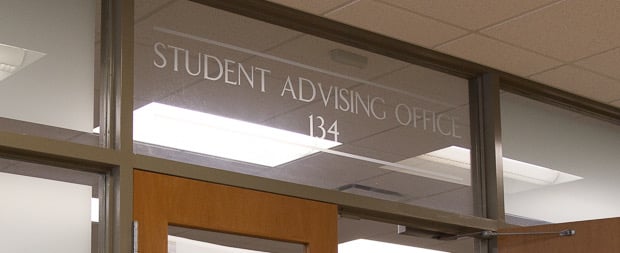Unpacking Michigan’s (Finally) Settled Education Budget
Over the last eight months, Michigan’s planning for the FY 2026 budget has been filled with frustration, delays visible in lawmakers “blowing past the July 1 statutory deadline” and “the constitutional deadline of October 1” for a budget, and “stalled negotiations” (MASA 10/3 Legislative Update; Chalkbeat Detroit). This year’s process also included a slew of divergent perspectives over how to support K-12 education, which were present in Governor Whitmer’s executive budget proposal, the Democratic-led Michigan Senate’s SB 166, the GOP-held Michigan House’s HB 4577, and this body's March back-up plan in HB 4162 that proposed only funding “bare bones” K-12 necessities in the case of a shutdown (MASA 9/26 Legislative Update; June 2025 Capitol Perspectives; Chalkbeat Detroit; MASA 3/7 Legislative Update). Last month, as was covered in the September 2025 Capitol Perspectives, meaningful progress was finally visible when lawmakers announced a loose framework on Thursday, September 25th, and approved a “week-long stopgap budget” that bought “more time to avoid a partial government shutdown” via HB 4161 in the wee hours of Wednesday, October 1st (Michigan Public Radio; WWMT). This month, on Friday, October 3rd, the Michigan House and Senate finally got across the finish line, approving SB 166 by votes of 104-5 and 31-5, respectively, to complete this year’s education funding plan at a level of $21 billion – “a $518 million (2.5%) increase over FY 2024–25” (MASA 10/3 Legislative Update). Shortly thereafter, Governor Whitmer “signed the budget bills” at Flint Community Schools without any “line-item vetoes” (MASA 10/10 Legislative Update; ABC 12).
Despite the uncertainty, pauses, and consternation along the way, which forced districts to prepare “contingency plans that...le[ft] critical positions unfilled, [cut] programs, [took] out high-interest loans, or even scal[ed] back student services such as free meals,” the conclusion of FY 2026 planning actually places Michiganders in a better spot than folks in some other states (MASA 9/12 Legislative Update; September 2025 Capitol Perspectives; August 2025 Capitol Perspectives). Emblematically, in North Carolina, “lawmakers have left [the state capital]...without passing a new state budget, more than three months after the July 1 deadline,” leaving “local governments...planning on last year’s numbers,” and, in Pennsylvania, sustained gridlock through October over the state’s budget “threatens the stability of public education, undermines the ability of districts to plan for the future, puts current and future educational initiatives and capital improvements at risk, and places undue financial burdens on local taxpayers” (ABC 13; CBS News).
Concerning the content of Michigan's FY 2026 School Aid Fund, the MASA 10/3 Legislative Update includes a comprehensive overview of this year’s available resources. Specifically, the finalized budget:
- Boosts the state’s “foundation allowance...by 4.6% to $10,050” per student
- Increases At-Risk funding by 25% to $1.3 billion (albeit with the new “requirement that recipient districts must provide a report to parents on how the funding was used and allow parents to provide feedback”), assistance to English learners by 25% to $62.7 million, special education resources by 5.7% to $528 million, and funding for CTE, “Small and Isolated School Districts,” and “ISD general operations” by 4.6%
- Provided $591.5 million “for increased [MPSERS] rate cap costs” while “remov[ing] the MPSERS cost offset...from last year”
- Allocated $321 million in “31aa (School Safety and Mental Health)” funds on a “one-time” basis for districts to use “over two years”
- Reserved $201.6 million for school meals, including at “nonpublic schools that participate in the Federal school lunch program”
- Eliminated the “Out-of-Formula Payment”
- Raised “the per-pupil rate and remov[ed] income eligibility rates” for Michigan’s Great Start Readiness Program (GSRP), totaling $626 million in spending
- Passed “one-time” funds for “School-Based Health Centers” ($33 million), the “Small Class Sizes Program” ($65 million), “Budget Stabilization” in “districts experiencing declining enrollment” ($71 million), “Before & After School Programs” ($75 million), “competitive grants for districts that have infrastructure needs” ($100 million), transportation ($125 million), and various programs focused on supporting educator recruitment and retention (e.g., “Grow Your Own” initiatives, the Michigan Future Educator Fellowship, the MI Future Educator Student Teacher Stipend, and the “Educator Compensation Program”)
- Created a $326 million “School Aid Pupil Reserve Fund”
- Conditioned “5% of a recipient’s state aid payment” on following “federal school meal rules” for “all students,” not “offering students financial incentives to attend on count day,” “disclos[ing]...all student survey questions,” and informing parents “when a district uses a curriculum not designated by MDE as evidence-based”
In discussing the finalized budget, Governor Whitmer defended the plan as “feed[ing] every child free meals at school, help[ing] our students succeed academically, and ensur[ing] Michiganders are safe in their communities” (Bridge). Relatedly, from across the aisle, Speaker Matt Hall (R – Richland Township) “praised the budget for its focus on flexibility and empowerment for parents and schools” (ABC 12). That said, despite these leaders’ approval of the finished product, there were some concerns about specific items in the budget, along with the process of debating it. First, concerning the budget’s substance, some entities have argued that the Michigan Legislature’s inclusion of “$400 million in additional higher education dollars...funded from the SAF” could “further erod[e] the long-term sustainability of the fund” (MASA 10/3 Legislative Update). Reflecting a different political perspective but also worried about the content of the agreement, in response to proclamations about record funding, State Senator Thomas Albert (R – Lowell) commented, “We already invest more per student than most states with below-average results...we should tie spending increases to policy changes that will truly improve student achievement” (Bridge). Second, various education associations and entities took issue with how the budget got done – namely, they criticized a “lack of accountability and transparency” (MASA 10/10 Legislative Update). In addition to being present in various opinion pieces preceding and following the budget’s passage, this idea was also voiced during October testimony “before the House Appropriations Subcommittee on School Aid” when district leaders “shared firsthand perspectives on how” this year’s process “created uncertainty...and disrupted planning” (MASA 10/24 Legislative Update). Similarly, some of the budget measures came as surprises to education leaders, who said that their inclusion “is just another example of how broken this budget process was” (Chalkbeat Detroit).
With the FY 2026 budget complete, “the Legislature [can begin] shifting back to business as usual” (MASA 10/24 Legislative Update). Representatively, in October, the House Committee on Education and Workforce considered legislation to “eliminate licensing requirements for school librarians” (HB 4922 – still in committee), allow excused absences for student participation in Future Farmers of America (HB 4665 – passed the House 101-4; in the Senate Committee on Education), “increase access to behavioral analysis services in schools by expanding who can provide them” (HB 5044 – still in committee), and govern “EpiPen access and administration in schools and childcare settings” (HB 5049 to HB 5054 – still in committee) (MASA 10/24 Legislative Update). There’s also legislation that was mentioned in the September 2025 Capitol Perspectives that lawmakers could consider, including HB 4556 and HB 4557 to “remove the requirement for Michigan 11th graders to take the SAT writing test as part of the Michigan Merit Examination (MME)” and “eliminate the mandate that individual subject scores from the MME appear on student transcripts” (both still awaiting a full House vote), HB 4024 to limit “access to restrooms and changing rooms in schools, community colleges, and universities based on sex assigned at birth” (passed the Michigan House in September 58-46; still in the Senate Committee on Government Operations), and SB 204 to require “that all public schools adopt a formal school building closure policy by July 31, 2026” (passed the Michigan Senate in September 19-15; still in the House Committee on Government Operations) (MASA 9/26 Legislative Update; MASA 9/12 Legislative Update). Just as the September 2025 Capitol Perspectives noted, the question is whether October’s budget breakthrough translates into legislative action on these threads or if gridlock continues to rule the day as the Michigan Legislature stares down records on legislative (un)productivity (Michigan Association of Counties).
Exploring Federal Education Policy Developments
When the September 2025 Capitol Perspectives checked in on federal K-12 education policy affairs, “Congress [had just] failed to reach a [budget] deal by the September 30 deadline” to do so, shutting down the national government (MASA 10/3 Legislative Update). At the time of this initial impasse, the predicted effects were numerous. In particular, they included disruptions to “Impact Aid and Head Start services,” further cuts to the U.S. Department of Education based on their shutdown contingency plan, which involved “immediately furloughing more than 2,000 agency employees...and pausing almost all activity around federal grants and civil rights enforcement,” and “an acceleration of the Trump administration’s stated goal of reducing the federal government’s role in supporting education” (September 2025 Capitol Perspectives; MASA 9/26 Legislative Update; EdWeek).
In October, without a resolution to the federal shutdown, many of these predicted effects started to come to fruition. Further, some new concerns materialized. First, as anticipated, this pause in federal governance interrupted funding for “programs such as Impact Aid and Head Start” (MASA 10/3 Legislative Update). Trying to assess the exact impact of the situation, an October report from NPR noted that “beginning Nov. 1, more than 65,000 children will be at risk of losing access to Head Start...because federal funding for individual Head Start programs cannot be disbursed while the government is shut down.” Moreover, because these programs are “funded annually...at different times of the year...if the shutdown lasts until December, still more programs would see their funding run out” (NPR). Second, the Trump administration’s scaling back of the U.S. Department of Education has continued, with members of the executive branch and agency leaders saying that they view “the shutdown as an opportunity to pursue spending reductions” (MASA 10/3 Legislative Update). In fact, over the last few weeks, there were more signs of the “Education Department...trying to use the government shutdown to further push for its own elimination” via messaging that “schools are operating as normal” despite the shutdown, furloughs of “95 percent of department workers,” and “paus[ed] civil rights investigations” (The Hill). Finally, and less predicted previously, multiple voices have raised the possibility of the shutdown contributing to students’ hunger, noting that the interruption of “Supplemental Nutrition Assistance Program (SNAP) benefits starting November 1” could harm “492,000 [Michigan] children” (MASSP 10/27 Legislative Update).
Looking ahead, there is some “pressure” to resolve this gridlock, “as millions of Americans face the prospect of losing food assistance, more federal workers miss their first full paycheck and recurring delays at airports snarl travel plans” (PBS). With that, toward the end of October, “the nation’s largest federal employee union [which “carries considerable political weight with Democratic lawmakers”]...called on Congress to immediately pass a funding bill and ensure workers receive full pay” (PBS). Additionally, some political reporters have flagged “signs of progress on ending the government shutdown for the first time in weeks...with senators expressing cautious optimism about bipartisan talks” (CBS News). That said, the reality is that the country is squarely in “the second-longest funding lapse in history,” and for every hopeful report, there are many articles that are much more “pessimistic,” casting “doubt on prospects for resolving the US government shutdown soon despite mounting consequences” (CBS News; Bloomberg). Concerning what it would take to reopen, Senate Democrats have consistently “blocked...Republican stopgap funding bill[s],” which commentators have read as “signaling that they believe it is up to Republicans, including President Donald Trump, to change strategy and engage in negotiations” (MASA 10/24 Legislative Update). They have specifically demanded “commitments from the White House to prevent the administration from mass firing more workers” and “subsidies for health plans under the Affordable Care Act” (PBS). Which side will compromise first, along with just how dire things get for Michigan students until then, remains to be seen.
Considering Revised Health and Sex Education Standards
In October, the Michigan State Board of Education was engulfed in controversy concerning “a proposed health education standards update” – the first such move since 2007 (Chalkbeat Detroit; MLive). Previously, in September, the body “heard a presentation on the proposed update” to health and sex education curriculum, but this month was significant because it included “the deadline for the public to provide feedback” (Chalkbeat Detroit). During this chance for public engagement at the October State Board of Education meeting, there was “a heated discussion” over the reform, with “more than two hours” of public comment (WILX 10; Chalkbeat Detroit). Further, this month, “State board member Nikki Snyder...proposed...a resolution [that ultimately “failed on a 5-2 vote along party lines, with five Democrats rejecting it”] that declared the proposed standards violate the U.S. Constitution” (Chalkbeat Detroit). Additionally, the House Oversight Committee approved “a resolution [HR 195] that officially opposes the proposed change...and calls for a redraft” (WILX 10; MLive).
The fierce dispute surrounding the Michigan Department of Education’s guidance involves a few concerns on both sides. Primarily, critics of the revised standards worry that they “will strip parents of their rights to opt their children out of lessons that don’t align with their children’s religious upbringing,” are based on “ideology” instead of “biology,” and cover topics “that belong in [students'] homes guided by parents’ faith and values” (Chalkbeat Detroit). Moreover, these individuals expressed anxieties that the new standards “blur lines between general health education and sex ed” (MLive). Finally, to the extent that parents have these apprehensions, these voices fear the standards could place “teachers in the unfortunate position of trying to come between the parents and the kids” or distract from a focus on “improving academic performance” (Chalkbeat Detroit; WILX 10). In response, Michigan Department of Education officials have argued that “parents can continue to opt their children out of sex education lessons” based on “state law” and “that local school districts can make individual decisions about how they incorporate the standards once they’re adopted” (Chalkbeat Detroit). Precisely, they have contended that the guidance “does not mandate all the specifics to local schools,” and it does nothing to disrupt “sex education advisory boards, which require parent input...in districts as curriculum is updated at the local level” (MLive). Besides, advocates of the revision have said the updated standards are vital “to the health and safety of Michigan students” in areas concerning sex but also “mental health, technology, [and] vaping” (Chalkbeat Detroit). For example, in terms of “the inclusion of terms that reference LGBTQ+ identities,” Interim State Superintendent Sue Carnell has said, “We can’t make education gains if students feel unsafe” and “the standards point to understanding tolerance and inclusivity” (WILX 10).
While especially intense now, this controversy is hardly the first concerning parental rights over their children’s education in Michigan or nationwide. Earlier this year, the U.S. Supreme Court ruled in Mahmoud v. Taylor that when it comes to student instruction, “preventing opt-outs interfered with a parent’s right to direct the religious upbringing of their children” (Oyez; Chalkbeat Detroit; June 2025 Capitol Perspectives). As such, both sides of this debate over health and sex education standards are likely to rally their camps to support their desired outcome. Perhaps hoping to diffuse the situation a bit, “Interim State Superintendent Sue Carnell...said the intent had been to bring the standards to the board for a vote in the next two months, but...she will now ‘meet with the team’ to reassess” (Chalkbeat Detroit). The next State Board of Education meeting, where there could be action on this reform, is Thursday, November 13th (MLive). At this point, the Michigan Department of Education has said that they plan “to present a summary of the feedback and any revisions to the draft standards” (WWMT). Until then, this case is likely to serve as added fodder in the K-12 “culture wars” (EdWeek; NEA; Fordham).
For questions or more information, please contact Tyler Thur in the Office of K-12 Outreach at thurtyle@msu.edu.




